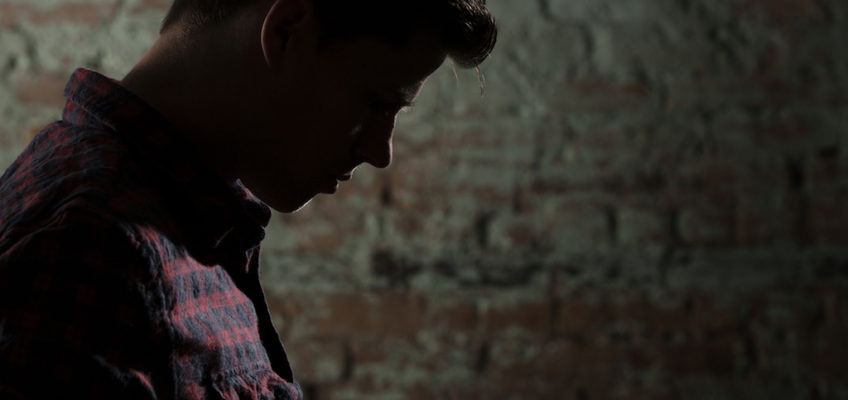Four years have passed since a mysterious chronic illness changed my life. I feel like a stronger, more piercing word than “change” is in order. But an appropriate substitute evades me, if such a word even exists.
I’m not the same person. Anyone who knows pre-chronic-illness and post-chronic-illness Frank could hardly deny this. I wrote about the whole journey in a previous post. If you want to know more about living with chronic illness, you can read it.
That’s not the point of this post. I bring up my chronic illness because it’s exposed some lies I used to believe about God. That’s what suffering does, you know. It shatters facades. It exposes false, toxic narratives. It forces you to see things as they are.
I’m not romanticizing suffering. Not hardly. A lot of dollars would I give to make this all go away. Nonetheless, here I am. And though I continue seeking and fighting for my health, I must live in reality.
Though chronic illness has forced me to confront several lies about God and though I believe suffering ripens the atmosphere for such examination, I don’t believe you need either to ask hard questions. That’s my hope here, that you will open your heart and mind. I don’t claim to have all the answers. The words below aren’t Gospel. Not even close. You might disagree with my conclusions. That’s okay.
Can we, for a few minutes, release the grip of certainty? Can we ask hard questions? Here are 4 lies I used to believe about God.
God has a plan for my life.
God does have a plan for my life (and yours). But not in the way we think about plans. Plans are rigid and exact and concrete. Plans have an end-goal and a clear method for reaching it. And, as chronic illness taught me, God’s plans for my life are actually my plans forged with God’s signature.
My plan included preaching and pastoring a large church, writing books and acquiring a Wikipedia page. I still remember the certainty to which I believed my plan was God’s plan. It would all begin to unfold on my thirtieth birthday. Thirty-years-old is an important milestone in the Bible. It would be an important milestone in my life too.
Chronic illness rendered my plans rubbish.
But God could heal you, Frank. This might be part of the plan.
He might. I hope he does. But here’s another flaw in the God-has-a-plan-for-my-life idea. “God’s plan” almost always has a happy ending.
Am I wrong? Could you imagine a plan from God that involves suffering? Or one where your child dies or you’re diagnosed with terminal cancer?
I can’t.
Until I went to the Mayo Clinic last year, I viewed my chronic illness through the lens of ultimate healing. God would heal, I thought. This is a season. It’s all part of his larger plan.
At Mayo, however, I rubbed shoulders with people who would – the miraculous aside – spend the remainder of their days with severe, debilitating pain or cancer.
There was no happy ending.
In those halls, filled with people, I was forced to ask a dreadful question: What if I’m never healed? What if this chronic illness remains with me the rest of my days? How could that be part of God’s plan?
God doesn’t have plans for our lives, not how we think of plans at least. God is more artist than construction worker. The canvas is more abstract than concrete.
God desires to be with us. His plan is a relationship with us. And yes, he does partner with us, as we create and work and such. But God has no “plan.” He simply desires for you to know he loves you and is with you.
God doesn’t like me.
I was told a long time ago that, as a Christian, I must love everyone but I do not have to like everyone. What a relief because some people suck.
I’m half joking.
Anyway, I’ve long struggled with believing God likes me. God loves me, this I know. I’ve never doubted it. But there’s something about being liked. It comforts the soul. When someone – a spouse, a friend, anyone, really – enjoys your presence, you feel good about yourself. Your esteem is higher. The cares of the world don’t weigh so heavily on your heart.
Flip that, though. Ever been around someone who doesn’t enjoy your company? Sure you have. It’s life-sucking, right? The negative energy messes with your identity, especially if the person who doesn’t like you also shares a bond with you, like a mother or father.
When you believe God doesn’t like you, you fear drawing near. You build walls because that’s what we do in the presence of people who don’t like us. These walls protect us. They guard our heart against emotional and psychological and spiritual wounds.
I suspect anyone whose childhood included legalism or abuse struggles with this lie on some level.
But I want you to know this: God likes you. He doesn’t just love you. He enjoys your presence. He smiles when you’re near. He pulls up a chair and welcomes conversation with you. He’s your best friend.
God doesn’t care about my suffering.
I’ve prayed for healing hundreds of times. This illness or disease or whatever it is has impacted every facet of my life. I’m forced to make sacrifices that thirty-two-year-old shouldn’t have to make. Do I throw the ball with my boys or spend extra time with my wife or try a short workout? Do I call and chat with a friend for an hour or use that energy to write? I can’t do it all. My body will shut down.
Why God hasn’t healed me? Does he not care about my pain? About my marriage, my relationship with my kids?
Chronic illness has made me realize that physical healing is not promised me nor is healing connected to God’s presence.
Certainly, God can heal. He can reach into our suffering and remove it. But what about when he doesn’t? What then?
I’ve come to believe healing is not the point. I hope it comes. Good Lord, I hope.
But if it doesn’t, I still believe God is with me. Particularly in the past month or two, as I’ve laid up in the bed while the world tarries on, I’ve had this peace come over me. I’ve missed precious time outside with my boys, doing dad stuff, you know. Throwing the baseball. Jumping on the trampoline. I’ve missed precious time with my wife, those hours after the kids are in bed, for example.
Despite all I’ve missed, I’ve had this feeling come over me, this realization that everything is going to be okay. What if I’m never able to be present for my kids the way I planned? What if I’m never well enough to write multiple books or become a good golfer?
Everything will ultimately be okay. My kids will be okay. My wife will be okay. I will be okay.
God does care about my suffering. He cares enough to suffer with us. And he promises to be with us in ours.
God is disappointed in me.
There’s much talk about living your best life, becoming your best self, tapping into unused potential. I’m fine with all that. We need nudges and challenges and such. But as the air becomes saturated with this talk, we can buy into the lie that God’s favor is somehow tied to how well we cultivate the stuff he’s given us.
True, you have gifts. And, true, God wants to partner with you to use those gifts. Untrue, though, is the belief that God is disappointed in you if you neglect to do this.
Man, have I wrestled with this. Am I doing everything I can for God? When I feel I’m not, I find myself ashamed, pulling away from God. God, however, is never disappointed in you. Disappointment is always tied to expectations. Expectations are almost always tied to control. God is not interested in control and therefore is never disappointed.
His disposition towards you never changes: it was and is ever will be love.
Grace and peace, friends.


Richard A. Bridgan
These insights come painfully in our lives. The joy of knowing the Savior…intimately, and in truth…is the joy that is set before us. I am blessed by this post, Frank…and praying for you in your journey with Christ.
Frank Powell
Thanks, Richard! Blessings brother!